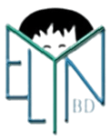Object and Complement: Learn The Difference
The terms ‘Object‘ and ‘Complement‘ are both important elements of a sentence, helping to convey complete and meaningful thoughts, but they serve different roles. Therefore, understanding the Object and Complement in a sentence is crucial for mastering English grammar. These two elements make sentences meaningful and complete. Let’s get started with what they are, how they function, and their differences.
Object এবং Complement (বাংলায় “কর্ম” এবং “সম্পূরক”) দুটি গুরুত্বপূর্ণ অংশ যা বাক্যের অর্থ এবং গঠনকে সমৃদ্ধ করে। এগুলোর মধ্যে কিছু সাদৃশ্য এবং পার্থক্য রয়েছে। নিচে তাদের সংজ্ঞা, সাদৃশ্য, এবং পার্থক্য বিস্তারিতভাবে ব্যাখ্যা করা হলো।
What is an Object? (কর্ম কী?)
An object is a part of a sentence that receives the action of the verb. It tells us what or whom is affected by the action. In other words, an Object in a sentence receives the action performed by the subject. It typically answers the question of “whom” or “what” the action is directed toward.
Definition of Object - কর্ম বা Object এর সংজ্ঞা
An Object is a noun, pronoun, or noun phrase that is affected by the action of a transitive verb.
কোন একটি Verb-কে ‘কী বা কাকে’ দ্বারা প্রশ্ন করলে Object পাওয়া যায়; অর্থাৎ Verb টির কোন Object প্রয়োজন হবে কিনা তা বুঝতে পারা যায়।
Examples of Object - কর্ম বা Object এর উদাহরণ
Example (উদাহরণ):
- I want a pen.
আমি চাই —–।
কী চাই? = a pen / একটি কলম
এখানে Object হলো a pen।
- I called Rana.
আমি ডাকলাম —–।
কাকে ডাকলাম? = Rana / রানাকে
এখানে, Object হলো Rana।
Types of Objects - কর্ম বা Object এর প্রকার
There are two main types of objects:
- Direct Object (প্রত্যক্ষ কর্ম)
- Indirect Object (পরোক্ষ কর্ম)
Direct Object (প্রত্যক্ষ কর্ম)
It directly receives the action of the verb.
Example of Direct Object – প্রত্যক্ষ কর্ম বা Direct Object এর উদাহরণ:
- She reads a book.
সে একটি বই পড়ছে।
(Here, “a book” is the direct object because it receives the action of “reads.”)
(“বই” হলো প্রত্যক্ষ কর্ম।)
Indirect Object (পরোক্ষ কর্ম)
It indicates to whom or for whom the action is performed.
Example of Indirect Object (উদাহরণ):
- He gave his friend a gift.
সে তার বন্ধুকে একটি উপহার দিল।
(Here, “his friend” is the indirect object because the gift is given to “his friend.”)
(“বন্ধুকে” হলো পরোক্ষ কর্ম।)
What is a Complement? (সম্পূরক কী?)
A Complement adds more information about the subject or object to complete the meaning of the sentence. It helps clarify or give additional context to the subject or object, making the sentence more complete.
In other words, a Complement in a sentence helps describe or give more details about the subject or the object. It typically answers the question of “what” or “who” regarding the subject or object in the sentence.
Definition of Complement - সম্পূরক বা Complement এর সংজ্ঞা
A Complement is a word or group of words that completes the meaning of the subject or the object in a sentence. It is usually a noun, pronoun, or adjective and comes after a linking verb or directly after the object to provide more information.
Complement হলো বাক্যের সেই অংশ যা subject বা object সম্পর্কে অতিরিক্ত তথ্য প্রদান করে বাক্যকে সম্পূর্ণ করে। এটি সাধারণত একটি noun (বিশেষ্য), pronoun (সর্বনাম), বা adjective (বিশেষণ) হয় এবং linking verb বা object এর পরে বসে subject বা object সম্পর্কে আরও তথ্য দেয়।
কোনো একটি sentence-এর subject বা object সম্পর্কে অতিরিক্ত তথ্য প্রদান করতে complement ব্যবহৃত হয়। এটি বাক্যের অর্থ সম্পূর্ণ করতে সাহায্য করে।
Examples of Complement - সম্পূরক বা Complement এর উদাহরণ
Example (উদাহরণ):
- She is a teacher.
সে একজন —–।
কে? = a teacher / একজন শিক্ষক
এখানে, complement হলো a teacher কারণ এটি subject (She) সম্পর্কে অতিরিক্ত তথ্য প্রদান করছে।
- They made her the captain.
তারা তাকে —– বানিয়েছে।
কী বানিয়েছে? = the captain / অধিনায়ক
এখানে, complement হলো the captain কারণ এটি object (her) সম্পর্কে অতিরিক্ত তথ্য দিচ্ছে।
Types of Complement - সম্পূরক বা Complement এর প্রকার
There are two main types of complements:
- Subject Complement (উদ্দেশ্য সম্পূরক)
- Object Complement (কর্ম সম্পূরক)
Subject Complement (উদ্দেশ্য সম্পূরক)
A Subject Complement gives more information about the subject of the sentence. It typically follows a linking verb (like is, are, seems) and tells us what the subject is or what it becomes.
Example (উদাহরণ):
- She seems happy.
সে খুব আনন্দিত মনে হচ্ছে।
(Here, “happy” is the subject complement because it describes the subject “She.”)
(“খুব আনন্দিত” এখানে subject complement কারণ এটি subject (সে) সম্পর্কে অতিরিক্ত তথ্য দিচ্ছে।)
Object Complement (কর্ম সম্পূরক)
An Object Complement provides additional information about the object of the sentence. It comes after the object and describes what the object has become or what it is.
Example (উদাহরণ):
- They elected him president.
তারা তাকে সভাপতি নির্বাচিত করেছে।
(Here, “president” is the object complement because it describes what “him” has become.)
(“সভাপতি” এখানে object complement কারণ এটি object (তাকে) সম্পর্কে অতিরিক্ত তথ্য প্রদান করছে।)
Similarities and Differences Between Object and Complement
Both Object and Complement play important roles in making sentences complete and meaningful. They are placed after verbs and provide further details. Here’s a summary in a table focusing on similarities and differences between them:
| Aspect | Object | Complement |
|---|---|---|
| Role | Receives the action of the verb | Adds extra information to subject or object |
| Position | Follows the transitive verb | Follows linking verbs or action verbs |
| Part of Speech | Noun, Pronoun, or Noun Phrase | Noun, Adjective, or Noun Phrase |
Check Your Understanding: Object and Complement
Identify the direct object:
She reads a book.
What is the indirect object in this sentence?
He gave his friend a gift.
Which of the following is a subject complement?
She is happy.
Identify the object complement:
They made her captain.
Which sentence includes a complement?
